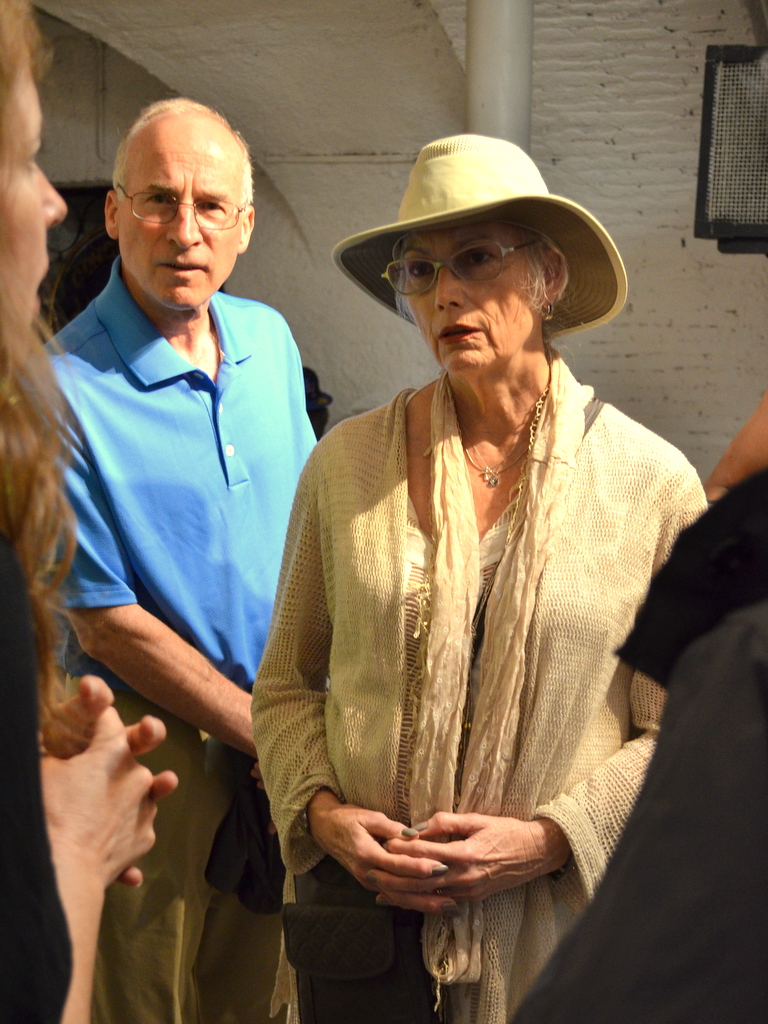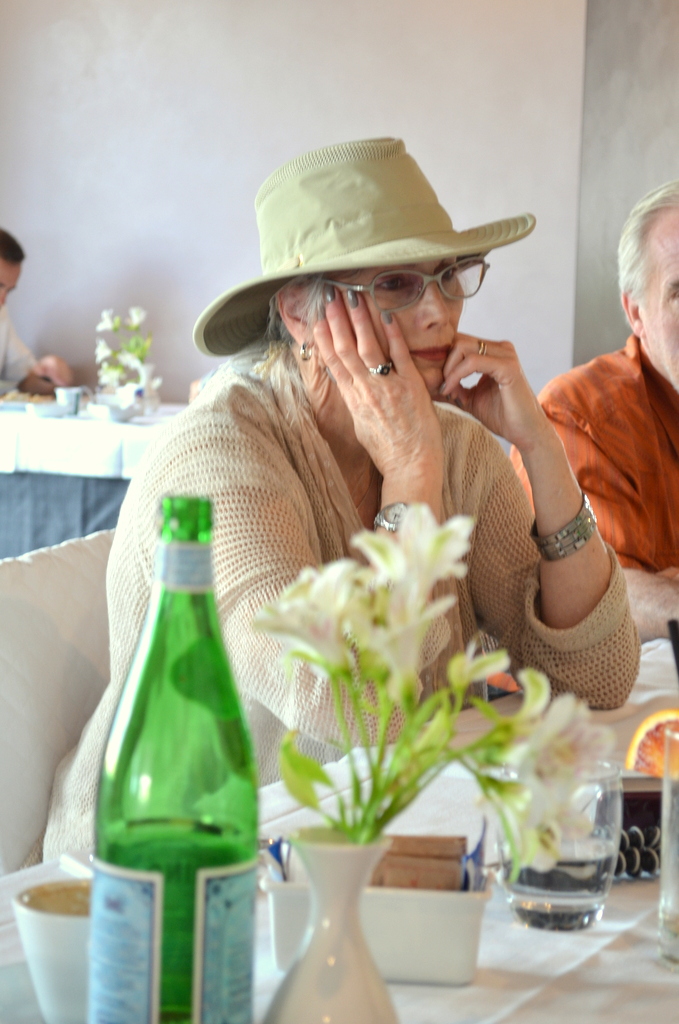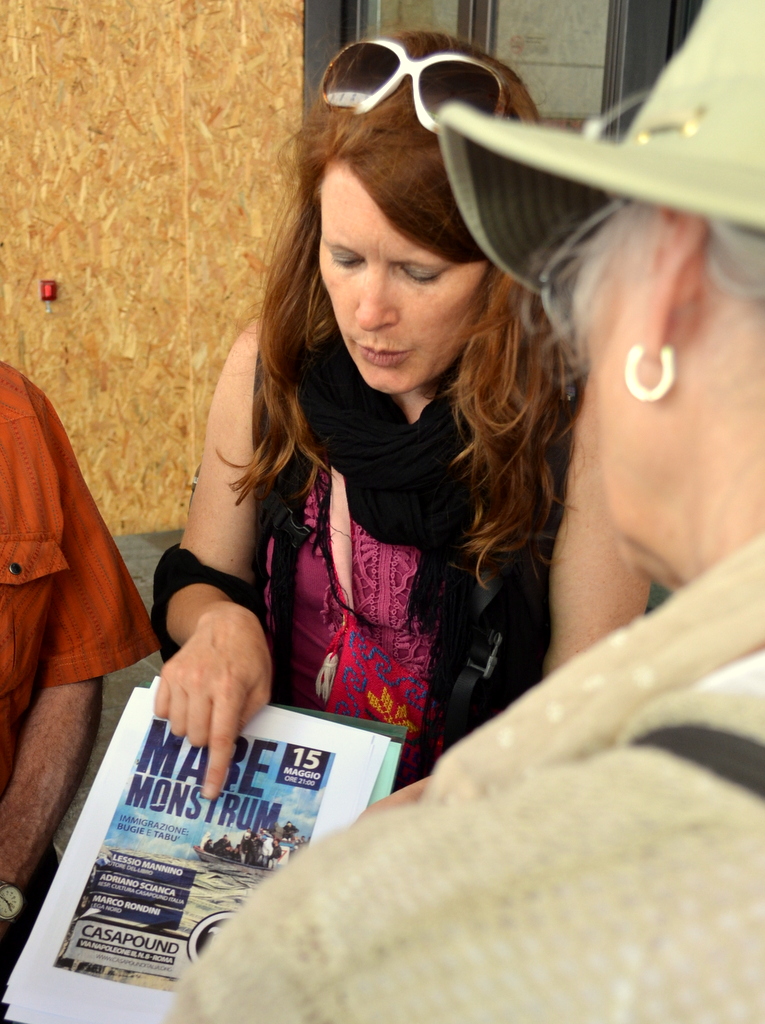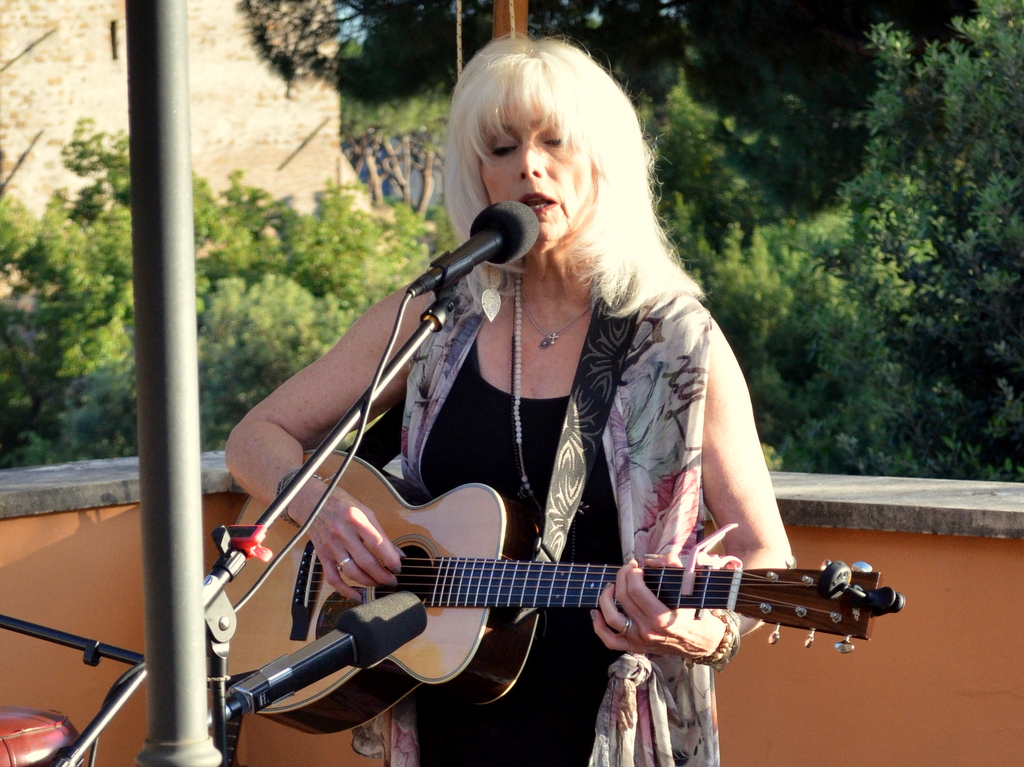
Emmylou Harris listens as JRS official Jill Drzewiecki explains the plight of EU refugees. Photo by Justin Catanoso
My dear friend and editor Lisa Chase, a senior editor and writer at Elle, the glossy women’s fashion magazine out of New York City, opened the door for me for one last Emmylou Harris story. This one is very different, mostly a Q&A of a more personal nature for Elle.com. The link is here.
Excerpt: As we walk the Roman streets that tourists avoid, Emmylou shares with me her motivation to get involved, the wellspring of her humanitarianism, and her everlasting belief in the power of music to change the world.







 New wind turbines in the North Sea off Germany. Renewable resources account for 30 perent of Germany’s power generation, more than twice what the U.S. produces. Photo: NY Times.
New wind turbines in the North Sea off Germany. Renewable resources account for 30 perent of Germany’s power generation, more than twice what the U.S. produces. Photo: NY Times.